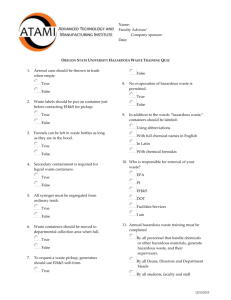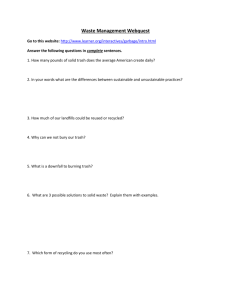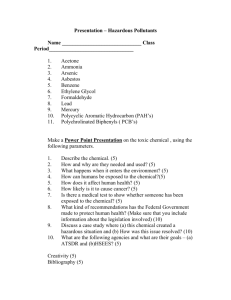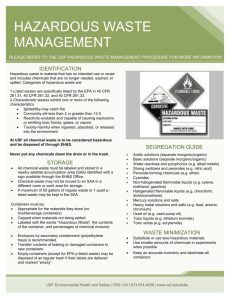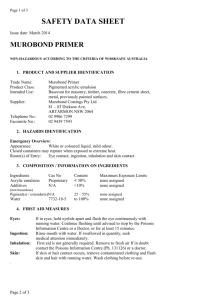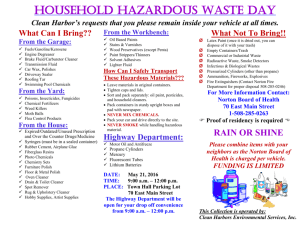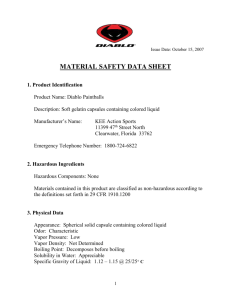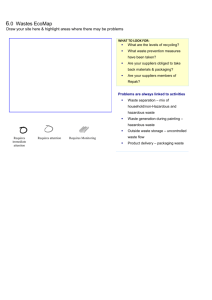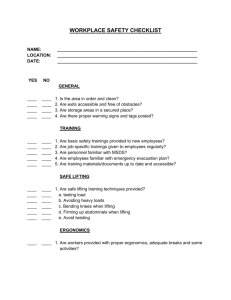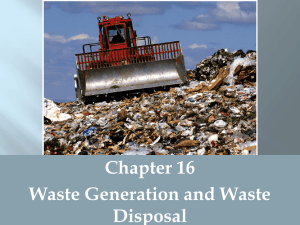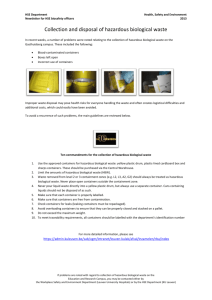Hazardous Waste Training Test & Documentation
advertisement
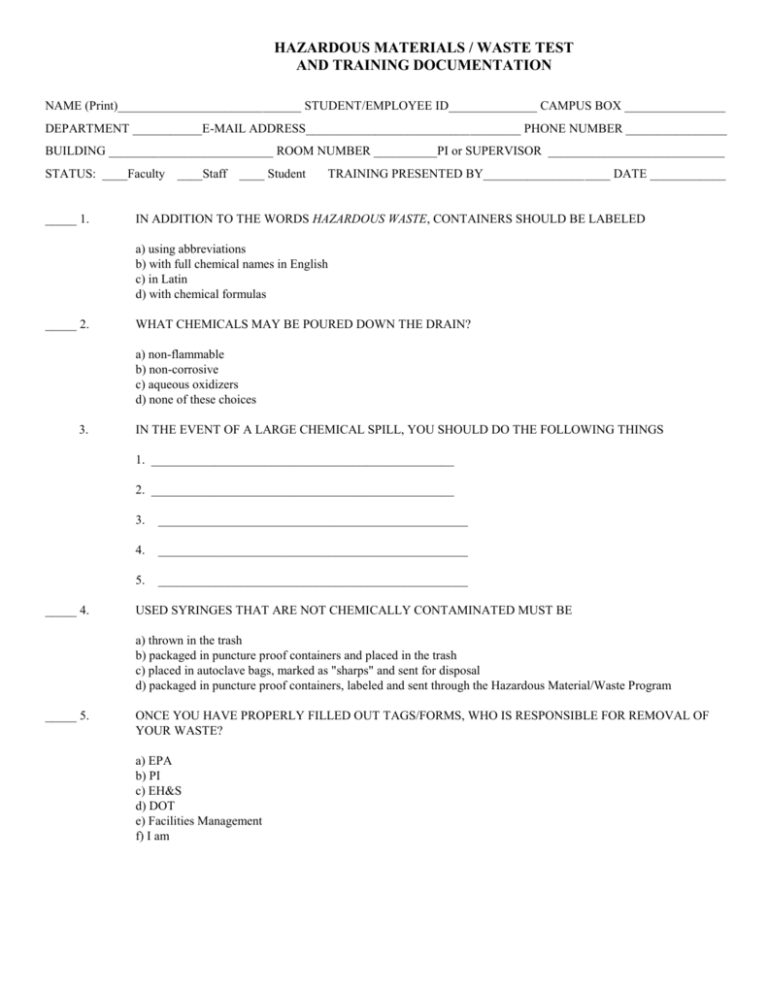
HAZARDOUS MATERIALS / WASTE TEST AND TRAINING DOCUMENTATION NAME (Print)_____________________________ STUDENT/EMPLOYEE ID______________ CAMPUS BOX ________________ DEPARTMENT ___________E-MAIL ADDRESS__________________________________ PHONE NUMBER ________________ BUILDING __________________________ ROOM NUMBER __________PI or SUPERVISOR ____________________________ STATUS: ____Faculty ____Staff _____ 1. ____ Student TRAINING PRESENTED BY____________________ DATE ____________ IN ADDITION TO THE WORDS HAZARDOUS WASTE, CONTAINERS SHOULD BE LABELED a) using abbreviations b) with full chemical names in English c) in Latin d) with chemical formulas _____ 2. WHAT CHEMICALS MAY BE POURED DOWN THE DRAIN? a) non-flammable b) non-corrosive c) aqueous oxidizers d) none of these choices 3. IN THE EVENT OF A LARGE CHEMICAL SPILL, YOU SHOULD DO THE FOLLOWING THINGS 1. ________________________________________________ 2. ________________________________________________ _____ 4. 3. _________________________________________________ 4. _________________________________________________ 5. _________________________________________________ USED SYRINGES THAT ARE NOT CHEMICALLY CONTAMINATED MUST BE a) thrown in the trash b) packaged in puncture proof containers and placed in the trash c) placed in autoclave bags, marked as "sharps" and sent for disposal d) packaged in puncture proof containers, labeled and sent through the Hazardous Material/Waste Program _____ 5. ONCE YOU HAVE PROPERLY FILLED OUT TAGS/FORMS, WHO IS RESPONSIBLE FOR REMOVAL OF YOUR WASTE? a) EPA b) PI c) EH&S d) DOT e) Facilities Management f) I am 6. LIST THE FOUR BASIC GROUPS OF INCOMPATIBLE CHEMICALS THAT SHOULD NOT BE STORED TOGETHER: 1. ________________________________________________ 2. ________________________________________________ 3. _________________________________________________ 4. _________________________________________________ 7. HAZARDOUS WASTE COLLECTION CONTAINERS MUST BE 1. _________________________________________________ 2. _________________________________________________ 3. _________________________________________________ _____ 8. SPECIFIC CHEMICAL HAZARD INFORMATION SHOULD BE AVAILABLE a) at the President's office b) in your work area c) on your MSDS d) b & c _____ 9. ANNUAL HAZARDOUS WASTE TRAINING MUST BE COMPLETED a) by all haz. waste generators b) by all Deans, Directors and Dept. Heads c) by all students, faculty and staff _____ 10. THE MAXIMUM VOLUME OF NORMAL HAZARDOUS WASTE STORED IN SAA __________________ 11. HOW OFTEN MUST HAZARDOUS WASTE GENERATORS INSPECT THEIR SAA AND DOCUMENT THE INSPECTIONS ON THE CHECKLIST? Brief summary of job responsibilities, including hazardous material/waste related duties_______________________________________________________________________________ _______________________________________________________________________________ I received hazardous waste generator training as noted above. I understand my responsibilities regarding program compliance. If I have questions about these issues, I will direct them to the Department of Environmental Health and Safety. I agree to promote pollution prevention and waste minimization, manage containers properly, prevent chemical releases to the environment, and follow the procedures for responding to chemical emergencies and spills. ______________________________________________, ________________ Hazardous Material/Waste Generator Signature Date
